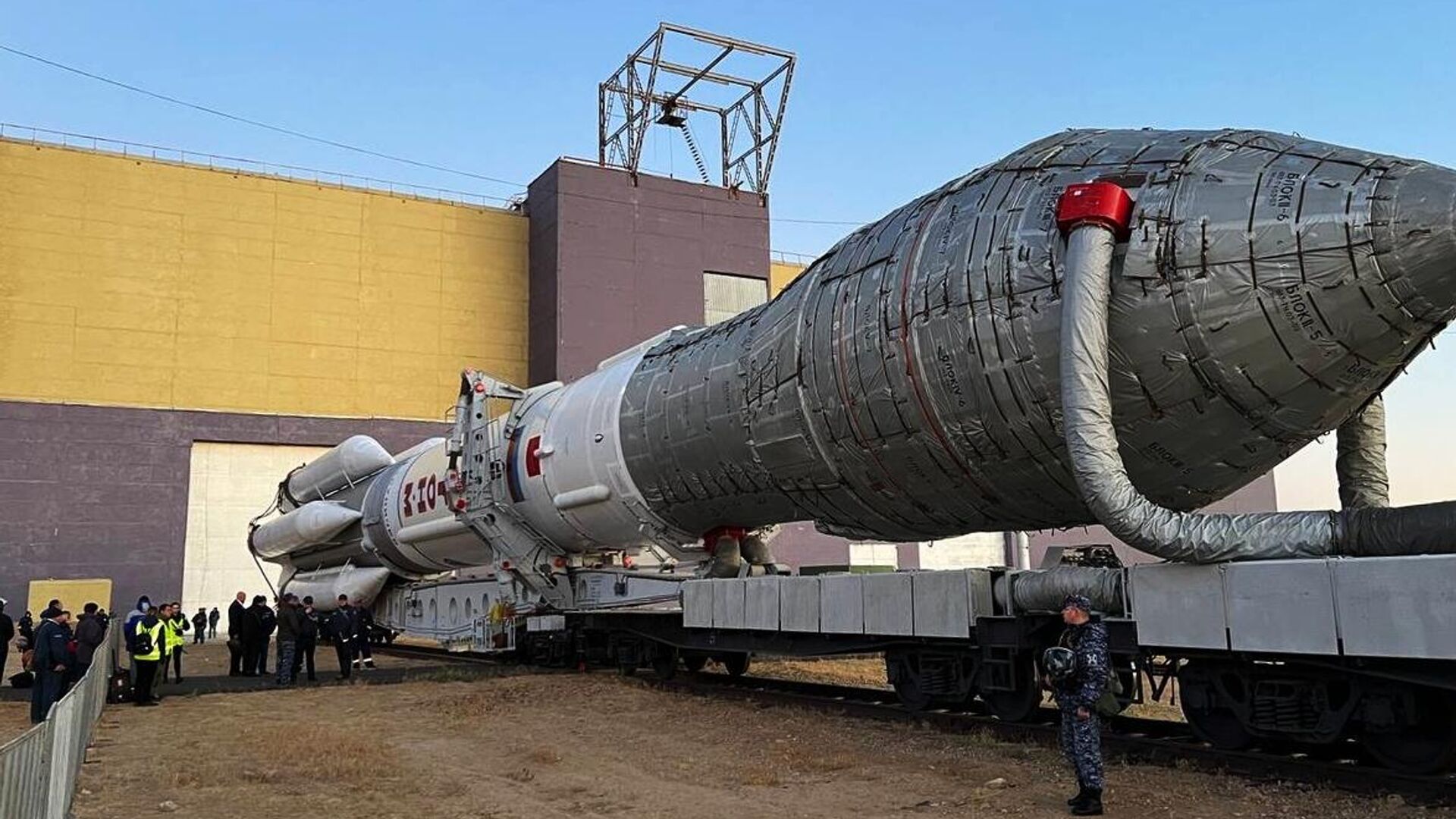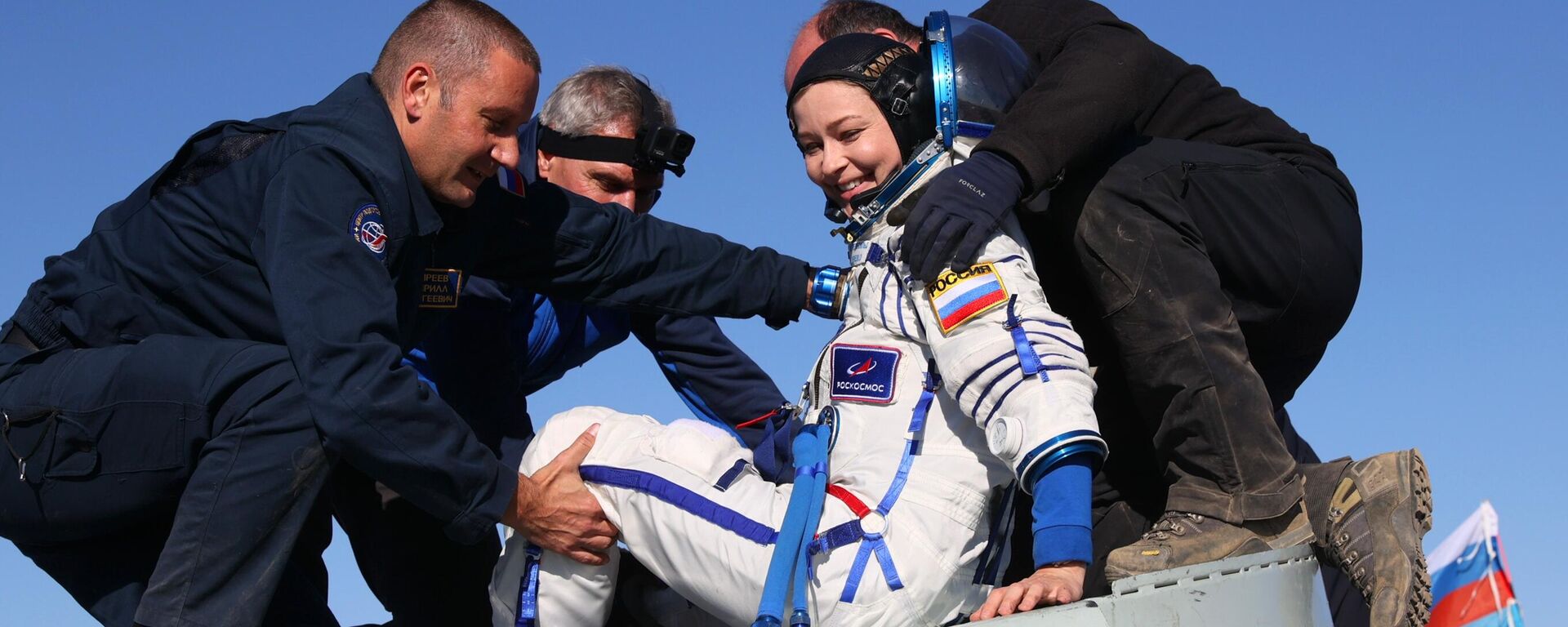https://en.sputniknews.africa/20230427/russia-lining-up-satellite-launch-deals-with-egypt-vietnam-south-africa-roscosmos-says-1058876540.html
Russia Lining Up Satellite Launch Deals With Egypt, Vietnam, South Africa
Russia Lining Up Satellite Launch Deals With Egypt, Vietnam, South Africa
Sputnik Africa
Russia has satellite launch contracts in the pipeline with countries in Europe, Asia and Africa and will not let itself become isolated, the head of the Roscosmos state space corporation said Wednesday.
2023-04-27T08:11+0200
2023-04-27T08:11+0200
2023-08-03T10:48+0200
russia
egypt
south africa
vietnam
space
satellites
roscosmos
north africa
southern africa
algeria
https://cdn1.img.sputniknews.africa/img/07e7/04/1b/1058876709_0:79:1175:740_1920x0_80_0_0_8f3f0854866972ae84d87253d8b1ccb8.jpg
"Countries like Algeria, Myanmar, Vietnam, Egypt and South Africa are working with us on different contracts to launch satellites, which we will design and put into orbit," Yuri Borisov said at an educational event in Moscow. Borisov said this proved that the United States and the Group of Seven could not isolate the Russian space industry. He added that space exploration should not be politicized. Roscosmos plans to build out national satellite constellations by producing 250–300 satellites a year by 2025 and a satellite a day by 2030. Borisov said satellite communication would underpin Russia’s economic growth and improve digital services. The Russian space chief also warned that defunct satellites littering the Earth's lower orbit would pose an even greater threat to space travel in the coming years. He estimated that over 7,500 active satellites are currently orbiting the Earth, and their number may rise by a factor of 10 by 2025.
https://en.sputniknews.africa/20230413/first-russian-film-shot-on-iss-to-be-released-abroad-1058573181.html
russia
egypt
south africa
vietnam
space
north africa
southern africa
algeria
Sputnik Africa
feedback@sputniknews.com
+74956456601
MIA „Rossiya Segodnya“
2023
Sputnik Africa
feedback@sputniknews.com
+74956456601
MIA „Rossiya Segodnya“
News
en_EN
Sputnik Africa
feedback@sputniknews.com
+74956456601
MIA „Rossiya Segodnya“
Sputnik Africa
feedback@sputniknews.com
+74956456601
MIA „Rossiya Segodnya“
russia, space, satellites, angosat-2, roscosmos, vietnam, south africa, egypt, satellite launch, algeria, myanmar, russia space, iss,
russia, space, satellites, angosat-2, roscosmos, vietnam, south africa, egypt, satellite launch, algeria, myanmar, russia space, iss,
Russia Lining Up Satellite Launch Deals With Egypt, Vietnam, South Africa
08:11 27.04.2023 (Updated: 10:48 03.08.2023) MOSCOW (Sputnik) - Russia has satellite launch contracts in the pipeline with countries in Europe, Asia and Africa and will not let itself become isolated, the head of the Roscosmos state space corporation said Wednesday.
"Countries like Algeria, Myanmar, Vietnam, Egypt and South Africa are working with us on different contracts to launch satellites, which we will design and put into orbit," Yuri Borisov said at an educational event in Moscow.
Borisov said this proved that the United States and the Group of Seven could not
isolate the Russian space industry. He added that space exploration should not be politicized.
"Cooperation with all countries that can and want to work with us should be enhanced. We are not alone. Our colleagues from Asia, Africa and some countries in Europe are ready to work with us. We will not isolate ourselves," he said.
Roscosmos plans to build out national satellite constellations by producing 250–300 satellites a year by 2025 and a satellite a day by 2030. Borisov said satellite communication would
underpin Russia’s economic growth and improve digital services.
The Russian space chief also warned that defunct satellites littering the Earth's lower orbit would pose an even greater threat to space travel in the coming years. He estimated that over 7,500 active satellites are currently orbiting the Earth, and their number may rise by a factor of 10 by 2025.


